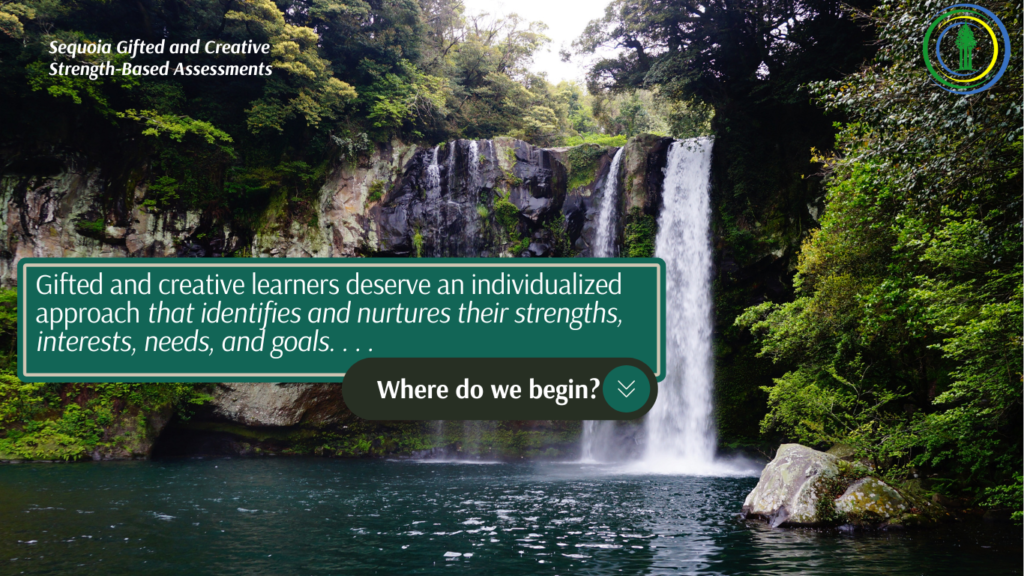
There are serveral types of assessments that provide further understanding and advocacy for our gifted and 2e children. Sequoia Gifted and Creative offers the following:
Strength-based assessements
Cogat-iowa
cognitive ability and achievement
assessments
The Cognitive Ability Test (CogAT) is a reasoning ability assessment frequently used for eligibility in gifted programs., including MENSA and CTY.
The IOWA achievement test provides a thorough review of Common Core grade-level standards, at or above a student's current grade level. Families frequently use the IOWA for acceleration advocacy, demonstrating grade or subject mastery. It is also often used to check foundational mastery and determine learning opportunities. Through partnership, we provide at-home access for Sequoia Gifted Academy homeschool families. After the assessments, we provide a 30-minute private consultation to review results and offer takeaways.
Online testing package (CogAT, IOWA, and 30 minute follow-up consultation): $225
Stanford 10 and OLSAT assessments are also available.
suite of tools individualized learning assessments and advocacy Profile
Each learner has unique interests, strengths, and learning profiles that, when identified and supported, provide entry points and talent development to empower their learning to soar. Through our exclusive training with the Suite of Tools, an evidence-backed assessment designed by leading experts in gifted/2e education, we engage in interviews with parents, educators, and the learner themselves to identify their unique learning profile. This is highly beneficial in advocacy, strength-based IEPs, enrichment, and personalized learning pathways.
SUITE OF TOOLS virtual interview collections from learner, parent(s), and teacher/instructor; learning profile slide deck; advocacy report; + 60 minute private consultation: $1600.
What is the Suite of Tools Strengths-Based Assessment?
The Suite of Tools contains a series of research-backed strengths-based talent-focused collaborative “assessments” to help families and educators recognize the unique gifts and learning styles of this learner. It was developed by Dr. Susan Baum and Dr. Robin Schader in the Bridges 2e Center for Research and Professional Development. After extensive training through the Bridges Graduate School, we are excited to be fully licensed to provide this to Sequoia families.
My Learning Print
The Learning Print explores the youth's learning preferences, specific interests, hobbies, and conditions where they are at their personal best.
Quick Personality Indicator
The QPI asks learners to rank descriptive statements, then helps to distinguish their learning styles as a People Person, Learned Expert, Creative Problem Solver, and/or Personal Manager.
Parent/Teacher Input
Parents as well as educators and other stakeholders (as invited) provide important perspectives on when the learner is at their best and what they envision for a wonderful learning experience for this youth.
Collaboration
After this collection, our educational consultant will share a slide presentation highlighting the profile of your unique student, offering suggestions for talent development opportunities and learning growth. Families frequently use these learning profiles for school advocacy, in IEP, GIEP, and 504 meetings, as well as in preparing homeschool or enrichment activities that nurture their learner's love of learning. .